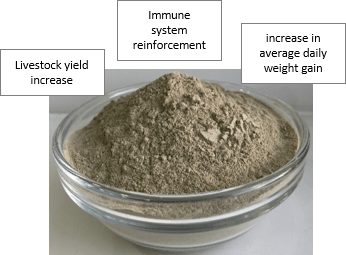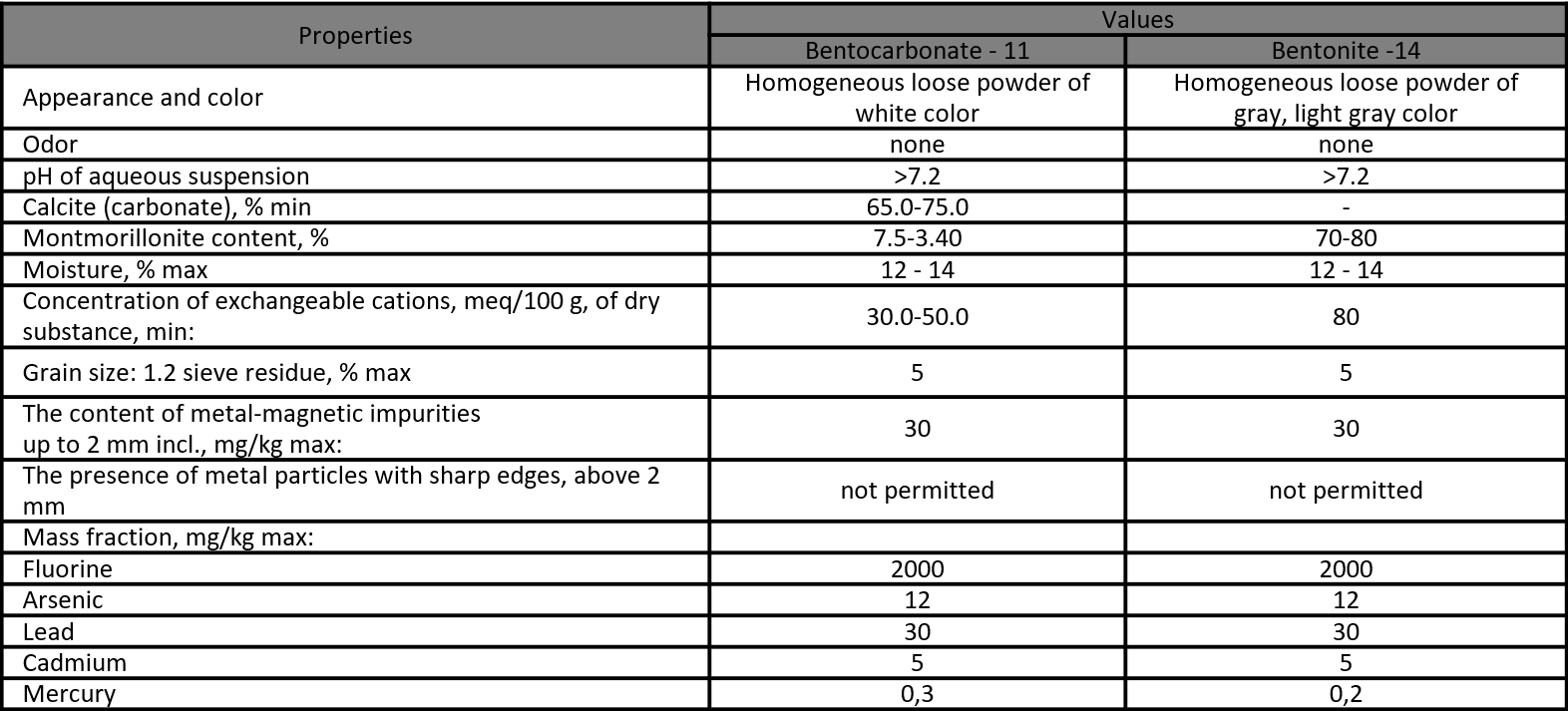BENTONITE FOR AGRICULTURE
Bentonite in agriculture is used as a feed additive, it contributes to the metabolic processes normalization, better absorption of nutrients, trace elements and vitamins, and stimulates livestock yield.
Bentonite has a high adsorption, catalytic, and ion-exchange activity. It adsorbs alkaloids, paints, heavy metals, toxins of microorganisms, nitrates and nitrites, and other harmful substances.
In addition, bentonite is widely used for:
- manufacturing of bedding desiccants, designed to combat moisture, pathogens and ammonia. Bedding desiccants improve sanitary and hygienic conditions of newborn animals and workers.
- land reclamation, as a carrier of plant nutrients. With the ability to retain moisture and nutrients, bentonite forms a favorable environment for plant nutrition in the rhizosphere.
- seeds granulation. Seeds are added to a mixture of bentonite clay and water, which is formed into a ball by extrusion. After “granulation” clay balls with seeds are simply dispersed.

TAGBENT LLP produces the following ecofriendly bentonite based products for agriculture:
Active mineral additives Bentocarbonate – 11 and Bentonite -14.
Physical and chemical properties:

All products are packaged in multilayer paper bags of 25 and 50 kg.
Feed bentonite
Feed bentonite produced by TAGBENT LLP is used for various applications: feeding, oil filtration and cosmetic industry.
Feed bentonite is used as:
- natural mineral additive in animal feed and diets of farm animals;
- prophylactic for gastrointestinal diseases, intoxication of the body of exogenous and endogenous origin;
- water and wastes purification agent in cattle, poultry and fish breeding.
Effects:
- improves feed digestibility and nutrients utilization,
- adsorbs and removes toxins from the gastrointestinal tract,
- has bactericidal properties,
- boosts immunity, increases the average daily weight gain.
Bentonite for crop production
Bentonite products is directly added into the soil to:
- Optimize air – water and nutrient regimes for the plants,
- Sorb and neutralize heavy metals;
- Prevent mold and fungal infection;
- Increase resistance to adverse environmental factors;
- Increase seed germinating ability;
- Accelerate the maturation of agricultural crops, increase their productivity, improve the condition of products, reduce production costs;
- With the optimal dosage, allows to increase the yield of spring barley, corn, grain, wheat by 15 – 30%.
